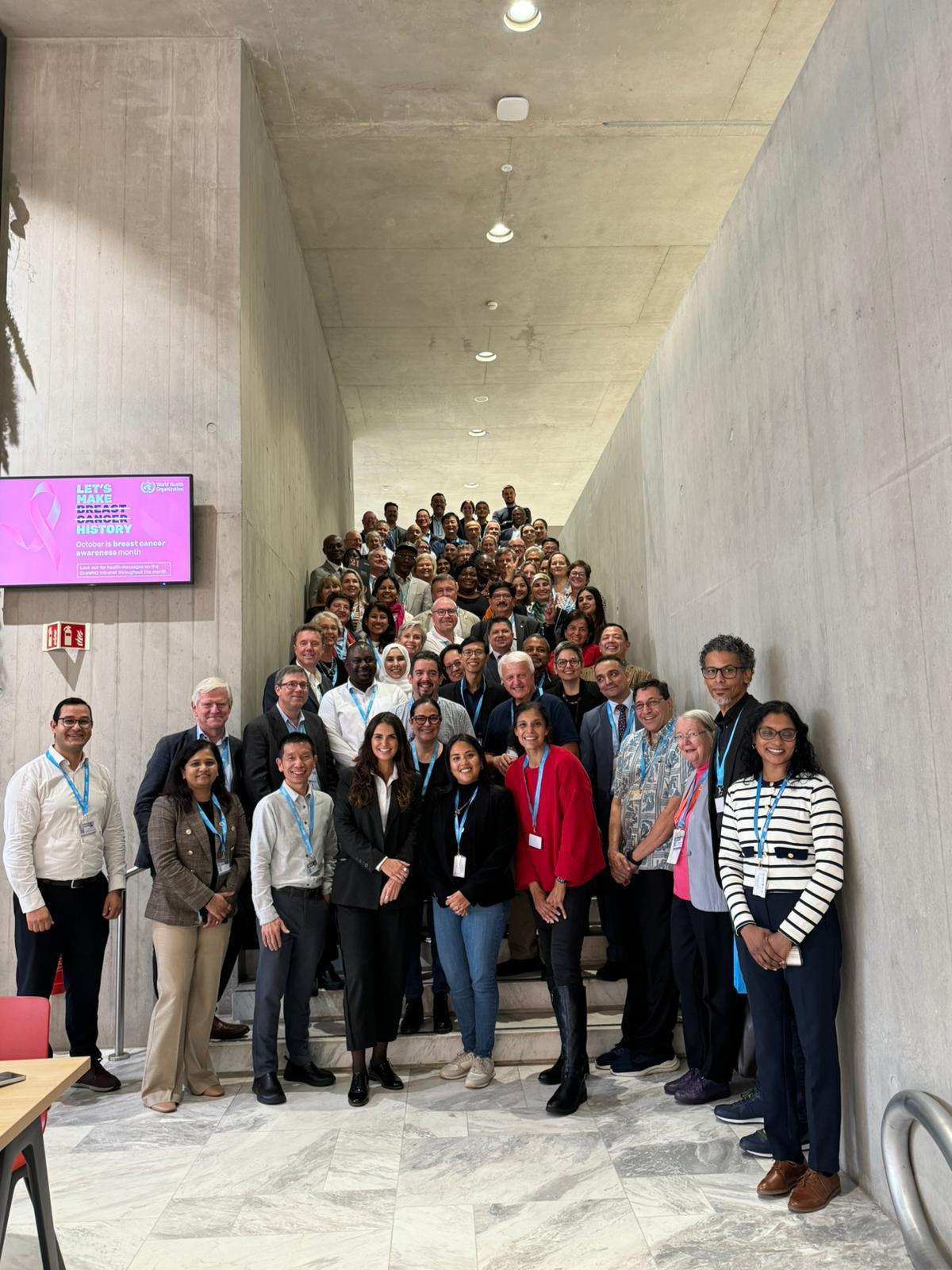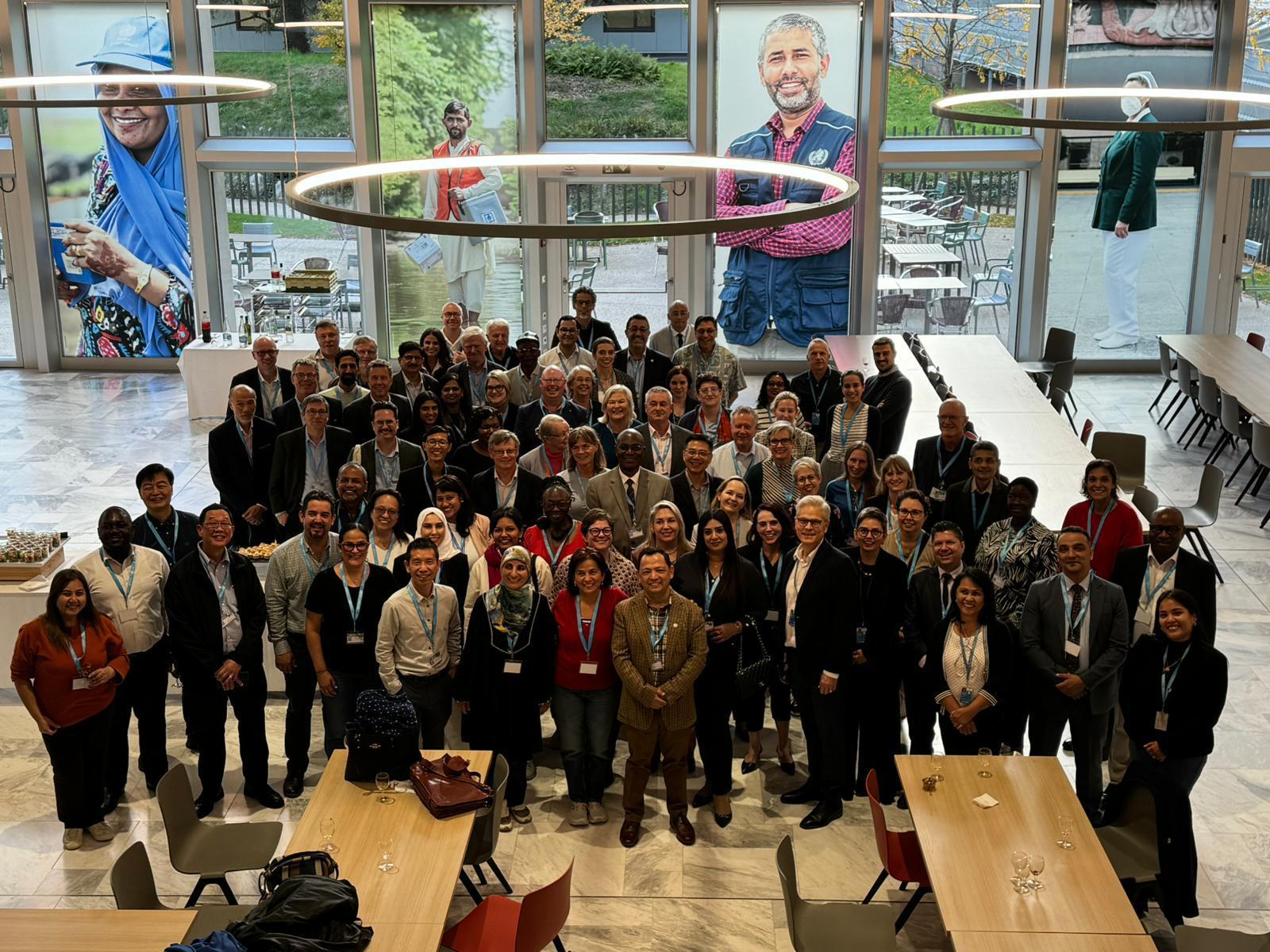ICM Joins Acute Care Action Network: Advocating for Emergency, Critical, and Operative Care in Universal Health Coverage

ICM was recently approved as a member of the Acute care Action network (ACAN), a global alliance of key actors and stakeholders who are committed to strengthening emergency, critical and operative care (ECO) services.
Elizabeth Franklin, midwife advisor, attended a week of meetings for the ACAN network in Geneva in October.
 ACAN arose from the World Health Assembly’s resolution (WHA76) – Integrated emergency, critical and operative care for universal health coverage and protection from health emergencies. The WHA resolution evolved in part from the lessons learnt during the COVID-19 pandemic which revealed pervasive gaps in the capacity of healthcare services to respond to emergency events.
ACAN arose from the World Health Assembly’s resolution (WHA76) – Integrated emergency, critical and operative care for universal health coverage and protection from health emergencies. The WHA resolution evolved in part from the lessons learnt during the COVID-19 pandemic which revealed pervasive gaps in the capacity of healthcare services to respond to emergency events.
Emergency, critical and operative care services are integral to meeting people’s health needs across the life course and an integral part of the drive to achieve Universal Health Coverage.
The meetings held in Geneva between 14-19 October included representatives of many professional organisations and key partners like Laerdal Foundation and the American Heart Association who provide support for ACAN.
Midwives, anaesthetists, cardiologists, surgeons, neurologists, nurses, intensive and critical care specialists, paramedics and international organisations were just a few of the professions and stakeholder groups represented.
The first part of the week was dedicated to harnessing the 30-year history of Utstein conferences on acute care. The Utstein meetings are a collaborative process whereby a series of rotating workshops are used to refine and update key actions needed to improve resuscitation globally. Workshop topics included clinical care delivery process, capacity building and training for pre-service education and in-service training, and data collection for quality improvement and planning.
System-level changes are essential to establish coordinated emergency services in every country. Medical personnel must receive training and have access to resources to improve health outcomes. This includes developing effective infrastructures and ensuring accessibility, even in regions facing uncertainty, instability, or insecurity, through innovative solutions.
Engaging communities is crucial to the provision of acute care. People need to be empowered to recognize early warning signs and to seek care. People and communities can also be the providers of acute care, whether as a by-stander who alerts emergency services or as a community first aid responder. Education programs such as ‘bystander CPR’ and ‘Stop the bleed’ need to be expanded and local “Good Samaritan” laws need to be in place to enable bystanders to respond to emergencies and protect them from reprisals if the outcomes are not as positive as hoped.
The latter part of the week saw the first convening meeting of ACAN with a larger group representing professional stakeholder organisations. The meetings objectives were to elaborate ACAN’s operational priorities, action coordinated scaling of agreed priority actions and to amplify the networks long-term vision.
 The recommendations of the working groups and the ACAN convening meeting are intended to influence and inform the development of the global strategy and action plan (GSAP) on integrated emergency, critical and operative care (ECO).
The recommendations of the working groups and the ACAN convening meeting are intended to influence and inform the development of the global strategy and action plan (GSAP) on integrated emergency, critical and operative care (ECO).
Stroke, cardiac, arrest, road traffic incidents, trauma and sepsis are some of the time-sensitive illnesses that cause unavoidable death if people don’t have access to emergency, critical and operative care. Eclampsia, severe bleeding in pregnancy, puerperal sepsis and conditions that occur in out-of-facility birth or where midwives do not have access to timely referral and consultation with obstetricians and pediatricians such as obstructed labor, postpartum hemorrhage and newborn asphyxia are some of the perinatal events that also require coordinated emergency services.
There is a clear case for midwifery representation in ACANs continued work to increase the provision of acute care services in all approaches to universal healthcare coverage.